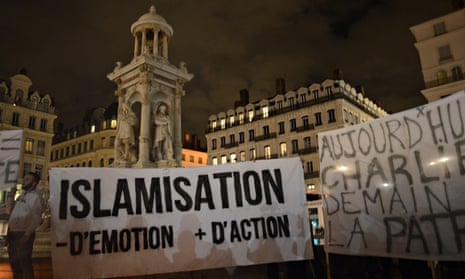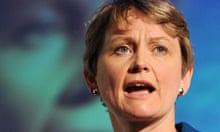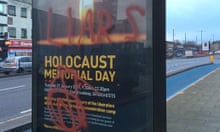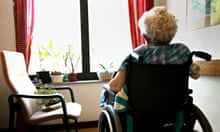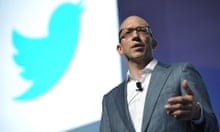In mosques across Germany on Friday prayers were dedicated to the victims of the Paris terror attacks. And next week members from Germany’s 900 mosque communities will be invited to take part in candlelit vigils in their memory.
“We will ask God to give his rich blessing to all victims of terror and violence,” Bekir Alboga, head of inter-religious dialogue for the Turkish-Islamic Union for Religious Affairs, told the media. “We are trying to see if we can get the Christian churches to join us.”
Fear is rife in Germany – and not only among Muslims – that the murderous attacks in Paris will intensify an already growing anti-Islamic mood in the country.
“I seriously hope that this doesn’t lead to an escalation of anti-Islamism and of Islamists,” the political scientist Gesine Schwan told broadcaster Deutschlandfunk as she stopped by the French embassy in Berlin to pay her respects. Schwan, who once stood as a candidate for the German presidency, said: “That would be another fatal twist and a dangerous one.”
In the light of the growing Pegida movement – a grouping of disillusioned citizens, neo-Nazis and football hooligans who oppose Muslim immigration and have been backed by the anti-immigration party Alternative für Deutschland (AfD) – the debate in Germany since the attacks in the French capital has been particularly nervous.
Such organisations, just like other populist and anti-immigrant parties gaining support in the polls across Europe, have been quick to make political capital from the attacks, citing them as proof that all their fears about Islamism were true.
“This bloodbath proves that those who laughed at or ignored the fears of so many people about a looming danger of Islamism were wrong,” said Alexander Gauland, a regional leader of AfD, which has its roots in the euro crisis and is currently riding at about 6% in nationwide polls, on the day of the Charlie Hebdo attacks. “This gives new weight to Pegida demands.”
In France the leader of the far-right Front National, Marine Le Pen, went further. “We must be in a position to respond to the war that has been declared by Islamist fundamentalism,” she said after a meeting on Friday of party leaders called at the Élysée Palace by the president, François Hollande.
“I regret that word has not been uttered by [Hollande] nor other politicians. The first thing when one is fighting a war is to be able to know what we’re fighting. We’re fighting an ideology, Islamist fundamentalism. Not to say it is a proof of weakness.”
Geert Wilders, the Dutch politician who faces trial for inciting racial hatred, repeated the sentiment that Europe is now “at war”. He called for the “de-Islamisation” of the west, adding in a statement: “We have to close our borders, reinstate border controls, get rid of political correctness, introduce administrative detention and stop immigration from Islamic countries.” Wilders’ Party for Freedom was once on the fringe of politics, but nowadays enjoys strong support in the polls.
In the UK, Nigel Farage was accused of using the attacks for political gain after he denounced Britain’s “gross policy of multiculturalism”. In an interview with Channel 4 News he said there was a very strong argument to see the attacks as a result of “a fifth column” who lived in Paris and London.
All of the anti-immigrant parties expect the attacks to boost support for their cause and are enjoying the chance to promote their particular demands.
In Switzerland Walter Wobmann, the Swiss People’s party politician who led the successful campaign to ban the construction of minarets, said it was now time to ban certain groups of Muslim refugees. He said there should be an immediate blanket ban placed on Muslim asylum seekers from Iraq and Syria coming to Switzerland. Martine Brunschwig Graf, head of the national commission against racism, condemned his position as “discriminatory”, saying it “resolves nothing and contributes to an atmosphere of hate and witch hunting”.
Italy’s leading rightwing politician also stepped up his anti-immigrant and anti-Muslim rhetoric, repeating his call for a ban on new mosques and Muslim cultural centres.
Matteo Salvini, head of the Northern League, which is gaining popularity, took to the airwaves to criticise Muslims in Italy for “trying to impose a way of life that is incompatible with ours”. He said for Europeans “to respond with tolerance and political correctness is suicide”. He also said Pope Francis was “doing a disservice” to Catholics because of his support for interfaith dialogue.
“Peace is fine,” he said. “But as a spokesman for all Catholics, you should be concerned with those who are slaughtering you all over the world.”
In Sweden Björn Söder, one of the leading members of the Sweden Democrats party, faced a backlash over the Facebook post he made directly after the Paris shootings: “The religion of peace shows its face.” Fellow politicians reported Söder – who is also a deputy speaker in the Swedish parliament – to police who were investigating charges of racial agitation against him.
As well as increasing their vigilance in public spaces across Europe, authorities said they were keeping a close eye on large gatherings, especially those where tensions between political opponents were in danger of spilling over.
Security concerns in Rome have prompted increased vigilance before Sunday’s football derby between Rome’s two main teams, Roma and Lazio, at the Stadio Olimpico. Local officials warned fans they would not tolerate any anti-Muhammad banners or signs attacking politicians at the match that could be deemed provocative.
Such games are routinely seen as a cause for concern. But Rome’s deputy mayor, Luigi Nieri, suggested that the preparations for Sunday were being handled with extra sensitivity.
“The climate is very delicate after the dramatic events that took place in Paris, and for that reason there’s a great sense of responsibility on everyone’s part,” he said.
Germany’s interior minister Thomas de Maizière called on Europeans to “reject all of this nonsense” from the political right.
Meanwhile Germany was bracing itself for fresh demonstrations in several cities on Monday by Pegida, whose supporters have been asked to wear black ribbons and take part in a “funeral march” in solidarity with the Paris victims.
An editorial in the Essen-based Westdeutsche Allgemeine Zeitung condemned the marches as “hypocritical … cynicism at its height. Those very arsonists who spread exclusion and intolerance are now projecting an image of themselves as the upright citizens.”
The head of the German police trade union Rainer Wendt told Die Welt that he feared the event, which last week drew 18,000 supporters, had itself become a possible magnet for terrorists.
“It doesn’t take much imagination to see the many Islam-critical events, slogans and demonstrations as potential terror targets,” he said.
Pegida is also expected to meet in Vienna for the first time on Monday, it announced in a Facebook posting, as police in the Austrian capital investigate who sprayed the wall of a local mosque with the slogan “Paris! Islam = shit out.”
